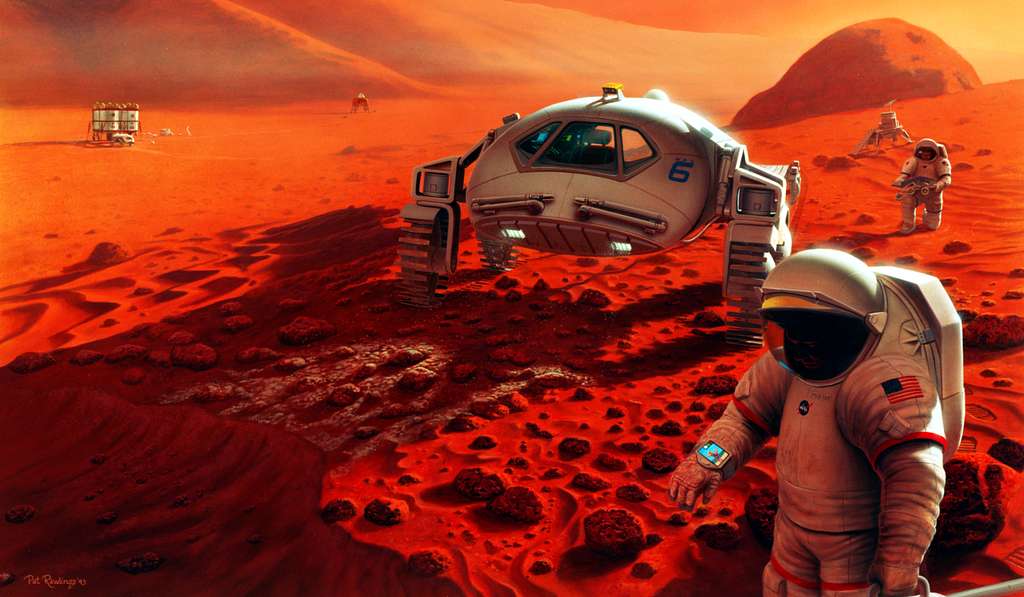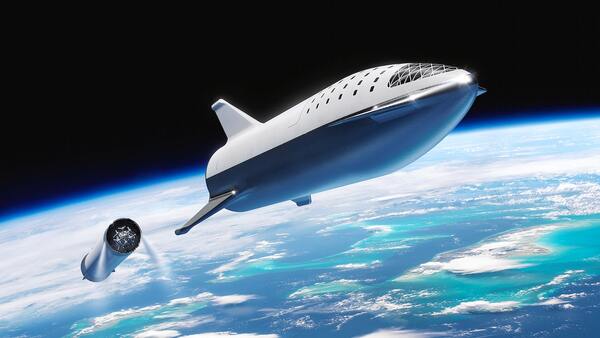Will We Ever Live On Mars?: Mars’s Environment and Challenges
The biggest obstacle to human settlement on Mars, and a core challenge in answering Will We Ever Live On Mars?, is its extremely hostile environment. First, Mars’s atmosphere is extremely thin and is composed of 95% carbon dioxide (CO2). As a result, breathing is impossible there, and there is no natural protection from the sun’s harmful radiation. Since Mars lacks a magnetic field like Earth’s, solar radiation directly reaches the planet’s surface, posing a serious threat to human health. Second, although water is present on Mars in the form of ice, it is not directly potable, and its extraction and processing present a huge challenge. Third, Mars’s temperature is extreme; while it can reach up to 20 degrees Celsius during the day, it can drop below minus 100 degrees Celsius at night. This vast temperature difference is a major obstacle to settlement. Fourth, the soil (regolith) of Mars is contaminated by toxic perchlorates, making it unsuitable for agriculture and direct use. Finally, Mars’s gravitational pull is only about 37.5% of Earth’s, which could have long-term physical impacts, and its effects on human bones and muscles are currently under research.

Will We Ever Live On Mars?: Technological Solutions and Human Preparation
To address these challenges concerning Will We Ever Live On Mars?, scientists are working on several technological solutions to enable human habitation. For shelter, plans are underway to create modular habitats or 3D-printed structures using Martian soil, which would protect against harmful radiation and extreme temperatures. For breathable air, technologies like MOXIE (Mars Oxygen In-Situ Resource Utilization Experiment) on NASA’s Perseverance rover are capable of producing oxygen from carbon dioxide. For water, technologies are being developed to extract and purify ice located on or beneath the Martian surface. For agriculture, controlled environment cultivation methods like hydroponics or aeroponics could be used, which would help produce crops without relying on Mars’s toxic soil. Furthermore, research is ongoing into energy production, waste management, and the use of nuclear or solar power as electricity sources. The successful implementation of these technologies is the first step toward permanent settlement on Mars.
Will We Ever Live On Mars?: Long-Term Challenges and Ethical Questions
Although technological progress has increased the possibility of settlement on Mars, thereby bringing us closer to answering Will We Ever Live On Mars?, some long-term challenges and ethical questions remain. First, the long-term effects of low gravity on the human body are not yet fully understood. Bone loss, muscle weakness, and decreased immune function are major concerns. Second, communication delays with Earth (approximately 3 to 22 minutes) and psychological isolation could be significant mental challenges for Martian inhabitants. Third, financial resources are a huge issue. Establishing a sustainable colony on Mars could cost trillions of dollars, which is not possible without international cooperation. Fourth, there are ethical questions regarding the potential microbial life on Mars and its protection. If life exists on Mars, preventing its contamination by Earth life is extremely important. Finally, questions remain as to whether Mars will truly be a “second home” for humanity, or if it will be limited to serving only as a scientific testing ground; these are subjects for future discussion.

Will We Ever Live On Mars?: Current Status of Mars Missions and Future Plans
Currently, various international organizations and private entities are actively working on Mars missions, contributing to the broader question of Will We Ever Live On Mars?. NASA’s Perseverance rover, Ingenuity helicopter, and China’s Tianwen-1 mission are collecting crucial data on Mars. Elon Musk’s SpaceX is developing a massive rocket called Starship, with the goal of sending humans to Mars by 2029 and establishing a self-sustaining human colony there. NASA’s Artemis Program is expected to pave the way for human expeditions to Mars after returning to the Moon. These missions are helping to gain deeper knowledge about Mars’s environment, resources, and the possibility of human survival. The goal has been set to send the first crewed mission to Mars in the mid-2030s, which, if successful, will usher in a new chapter in human history.
Will We Ever Live On Mars?: Conclusion: The Dream of a Bold Step
So, Will We Ever Live On Mars? The answer is not simple, but in the current context, it can be said that, yes, it is possible. However, this requires immense financial investment, continuous scientific research, technological innovation, and international cooperation. If humanity can overcome these challenges, Mars could one day become humanity’s second home. This will not only be a scientific or technological achievement but will also set a historic example of humanity’s indomitable courage, adaptability, and will to survive. Settlement on Mars could serve as a “backup plan” for our species, ensuring humanity’s survival in case of a major catastrophe on Earth in the future. This dream may not be fully realized in our lifetime, but its foundation is being laid today, which will inspire future generations to explore and conquer the unknown vastness of the universe.

riqkzzhqolhtpmpzqkkeifhhirimrv